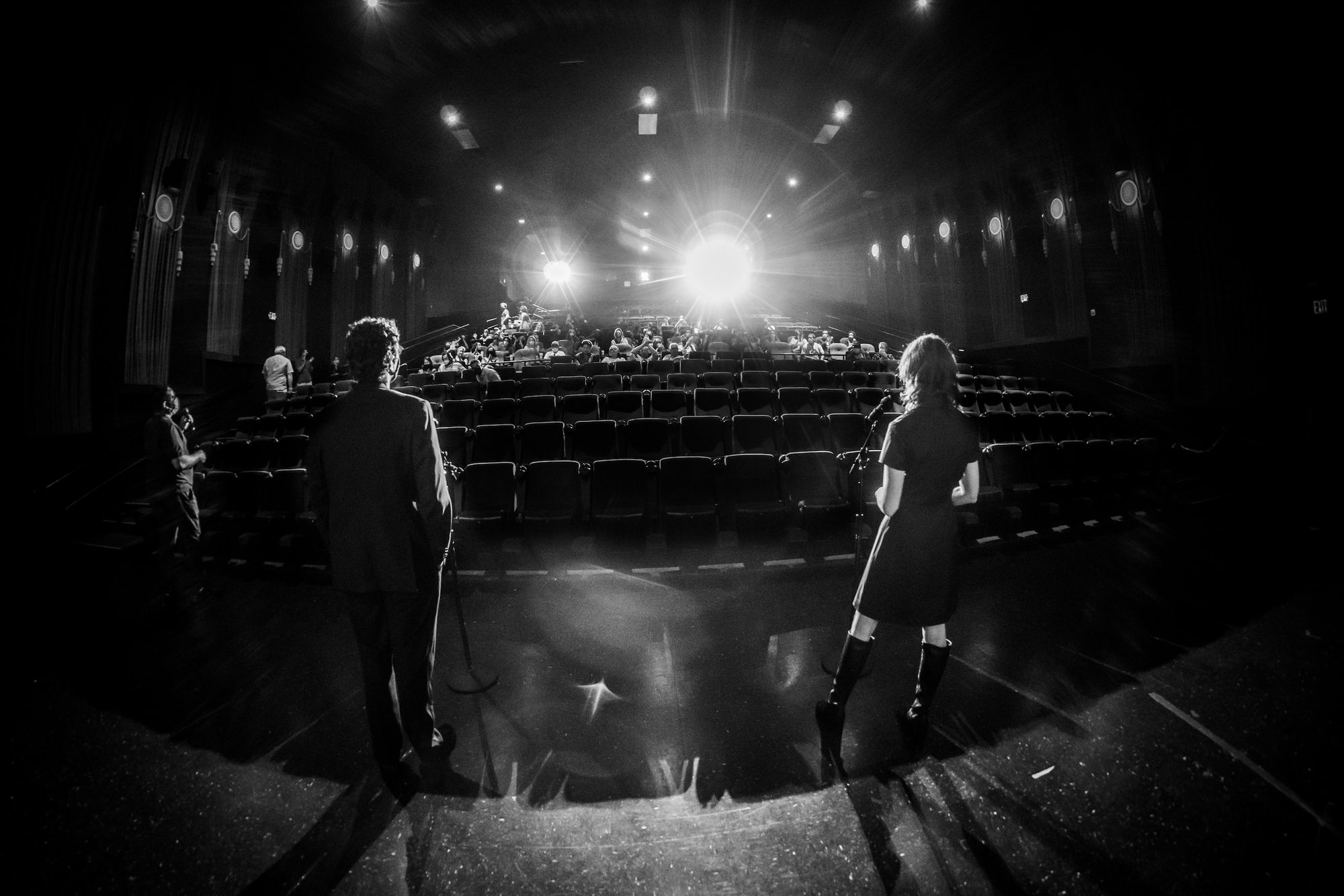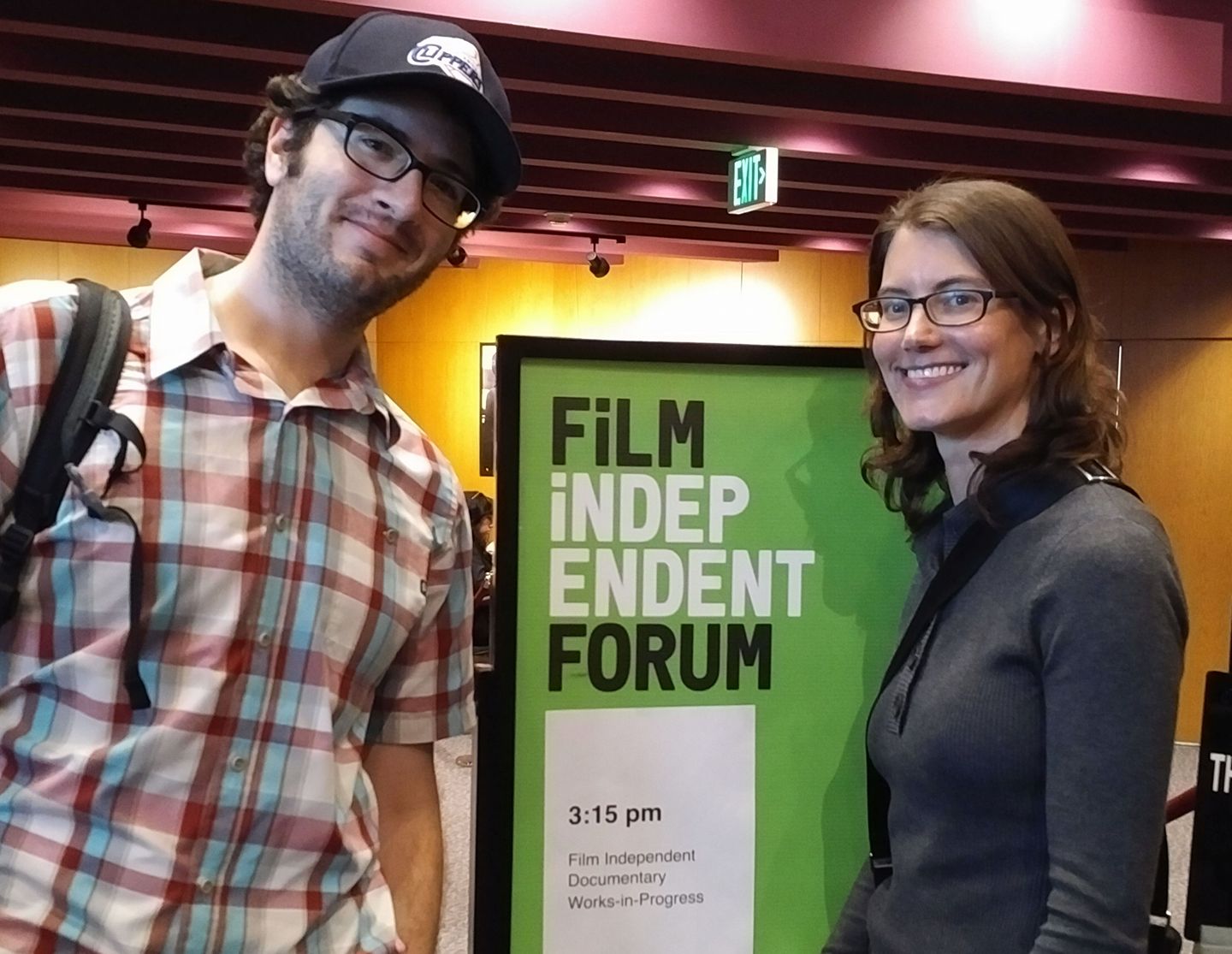
How NOT to Make a Documentary
In undergrad our first directing assignment was simple. Just shoot a short visual activity with no dialogue from start to finish. Could be as simple as making toast or a cup of coffee, it was up to you.
Now, I thought I was clever because I wasn't going to shoot making toast, I was going to shoot a pool game, which would allow me to make a mini movie spoof of The Hustler and Color of Money where two guys go to ridiculous lengths to beat each other in a game of billiards. It was full of Scorsese-style tracking and cueball POV shots, all set, of course, to The Stones’ “Gimme Shelter.”
The next week, when it was time to screen our pieces, I was certain mine would be the best in the class. I mean, I'd found a way to take a simple assignment and turn it into something fun, memorable, and with a story arc. And I was right, up until we screened a classmate’s film, which was not making toast or a pool game, or even filming an activity from start to finish. Instead, he had made a black and white biographical short film about the unrequited love of one Mormon missionary for his male companion. It was not short, it was not what the teacher had assigned, and it was fucking beautiful. Our professor ended up showing it to other classes because it was so good. I, too, thought it was good, though I was a bit miffed because ... he hadn't followed the rules. I had, and it felt like I’d been punished for doing so.
And this is where I learned that, when it comes to art: all that matters is that it’s good.
If you write a shitty script, then we will gleefully point out all your formatting and spelling errors, but if it's a great script we won't care if your slug lines are bolded or underlined or italicized or are hyperlinks to still photos of the actual locations. Good art triumphs all rules. Nobody goes to watch a play or listen to a symphony because of how well it follows the prescribed rules of the genre.
A screenwriting teacher told us about how he'd read the original Good Will Hunting script that went around town, and it was a "technical disaster." But it was a compelling story with great characters that everybody loved. Execs can reformat a script—what they can't do is create art.
If they could, they wouldn’t be execs.
So, when I first pitched the idea of Too Soon to my co-director Julie, a comedy journalist who'd never made a film, even one about toast, she liked the idea, but asked, “How do we go about making this?”
Now, any good "how to make a documentary" guidebook would tell you to hire a qualified DP (Director of Photography) and sound mixer to get the best quality picture and sound. And if you've got the money to do that? Great. But we didn't have money—we just had each other. So I borrowed my roommate’s SLR, a lav mic, and tripod, and we started shooting interviews ourselves.
Are they the best-looking interviews ever captured on camera? No. Were they better than having no footage at all? Yes. So, we didn't do it by the book, but we got it done so we could cut sizzle reels to show to other potential interview subjects and their managers, so we could get more butts in chairs, so we could get more footage.
Now would it be best practices when accumulating this footage to hire an AE (Assistant Editor) to properly label and sync everything? Of course. But even if we had the funds to get an AE, we didn't have an editing system. We were sneaking in Avid time on off hours and weekends.
Our project was a sprawling mess by the time we got our own editing system. Once we'd sold the project to VICE, and finally had a budget, we tried to hire another editor to finish the film. He quit after a week. He suggested that we should entirely shut down postproduction for a month and basically rebuild the entire project from scratch. Did we do that? What do you think? At that point, we were too engrained with the idea of always making progress, no matter the obstacle, that we weren’t going to stop working on the film because our project wasn’t laid out like other projects should be.
If we'd followed the rules and had done things the way we were supposed to, we wouldn't have had a pitch deck and sizzle reel and rough cut to sell to VICE. Were we being stubborn and bull headed? Probably, but after five years of doing whatever it took, with whatever tools we had at hand, we weren't going to let something like improperly synced interviews stop us from making our film.
Would I want to make another documentary in this particular manner?
FUCK NO.
Am I glad we did for Too Soon: Comedy After 9/11?
Hell yeah.
Otherwise, we wouldn’t have a film that demonstrates the healing power of comedy and how that healing only happens because entertainers are willing to go on stage and bring up topics and subjects that many find taboo or hard to discuss. Often, the only way to help us process the fucked-up world we’re living in is to break the rules of polite conversation and discourse.
We had to break the rules in order to make a film about rule-breakers.
So, here are just some of the ways I’d suggest for "How NOT to make a documentary:"
DON'T WAIT FOR SOMEONE ELSE TO MAKE IT: I'd had the idea for Too Soon ten years before I pitched it to Julie. I thought it was a great idea, but I was certain someone more capable was already working on it, that I would read about it on Deadline any day now. In fact, my first lunch meeting with Julie started with me just asking her, since she was a comedy journalist, has someone already done this? Her answer was no. Were two nascent documentary filmmakers the most likely, or even capable, people of making this film? N.O. Would anyone have hired us if it was their idea and not ours? Negative. But we had the idea, and the only way to make it a reality was to do it ourselves, with what we had, so we did.
DON'T WAIT FOR PERMISSION: We'd still be twiddling our thumbs if we had waited for a certain comedy network, that loved our idea and whom we met with many, many times, to pull the trigger and buy the pitch.
DON'T WAIT FOR BIG NAMES: You know you need them to not just help sell your film, but to help tell your story. But you don't get Nathan Lane and Matthew Broderick or Marc Maron just based on the idea. These people are busy, they have many requests for their time, they have sat and talked to many people making documentaries that never even got released. So, they want to know a) that this won't be a waste of their time, and b) that your film about comedy after 9/11 isn’t going to become a documentary about THEM.
As one comedy club owner told us, “no well-known comic wants a film to be about them if they don't have control of the project.” But if it's an ensemble where they are just one voice of many, then they'll be game. So that's what we did. We collected as many respected comics as possible to show to other entertainers that this wasn't going to be about them, but about that time when it seemed like irony was dead and nobody thought we would laugh again. That if Gilbert trusted us enough to talk about his infamous joke at the Hugh Hefner Roast, then they could share their experience without fear. Julie and I talked about the process as if we were climbing the ladder, just making our way up one rung/interview at a time.
DON'T INTERVIEW EVERYONE: We got a lot of suggestions for whom we should talk to, and a lot of offers. You might be surprised to learn that there are a lot of performers who have opinions on comedy. Or there were suggested storylines, like the comic who lied about being in the attacks. It’s interesting, but does it have anything to do with the healing power of comedy? Is it just a distraction from our real story? Very quickly we learned to start filtering out potential contributors. Were they performing in New York at the time? Did they do material about 9/11, did their comedy evolve or change because of 9/11? Those are the people we needed to talk to. A young popular comic would look good on the poster, but would they actually have anything more important to say about that time than the comics who lived through it?
DON'T EDIT EVERYTHING: This may sound counterintuitive for an archival heavy piece like Too Soon, but you can spend a lot of time editing and tweaking something that's not going to be in the film. So, before you do that, figure out: what is your story, what is your theme, and then only focus your creative energy and editing time incorporating pieces that fit. Otherwise, you could spend literally thousands of hours watching archival footage that is never going to make the final cut.

DON'T ASSUME THE CALVARY IS COMING: The biggest mistake we made, and continued to make even up until now as the film is about to be released, was thinking that eventually we’d be able to take our hands off the wheel and someone else would help us guide the ship into port. When that editor quit, I had to take over and keep delivering cuts while we found a replacement. When we learned we couldn’t use any footage from certain films and had to replace all our B-roll for a huge sequence of the film, we spent the weekend going through every Getty and stock image site in order to find replacements that wouldn’t sabotage the film. I spent the other weekend compiling a list of 150 critics who had reviewed similar films.
When I hear stories now about famous directors who are “control freaks,” I shake my head knowing that really they are “caring freaks.” No amount of money is going to make someone care about your film more than you. So, just know from the beginning that you have to lead by example, you have to be enthusiastic and passionate and instill that in everyone else working on the film. And at the end of the day, no one will know how good your rule-breaking film is, if they don’t see it.
Editor's Note: Too Soon: Comedy After 9/11 is screening at the New York Comedy Festival on November 12, 2021. Tickets are still available.
*Feature Photo: Nick Fituri Scown and Julie Seabaugh at the Dances With Films Screening / photo by Troy Conrad